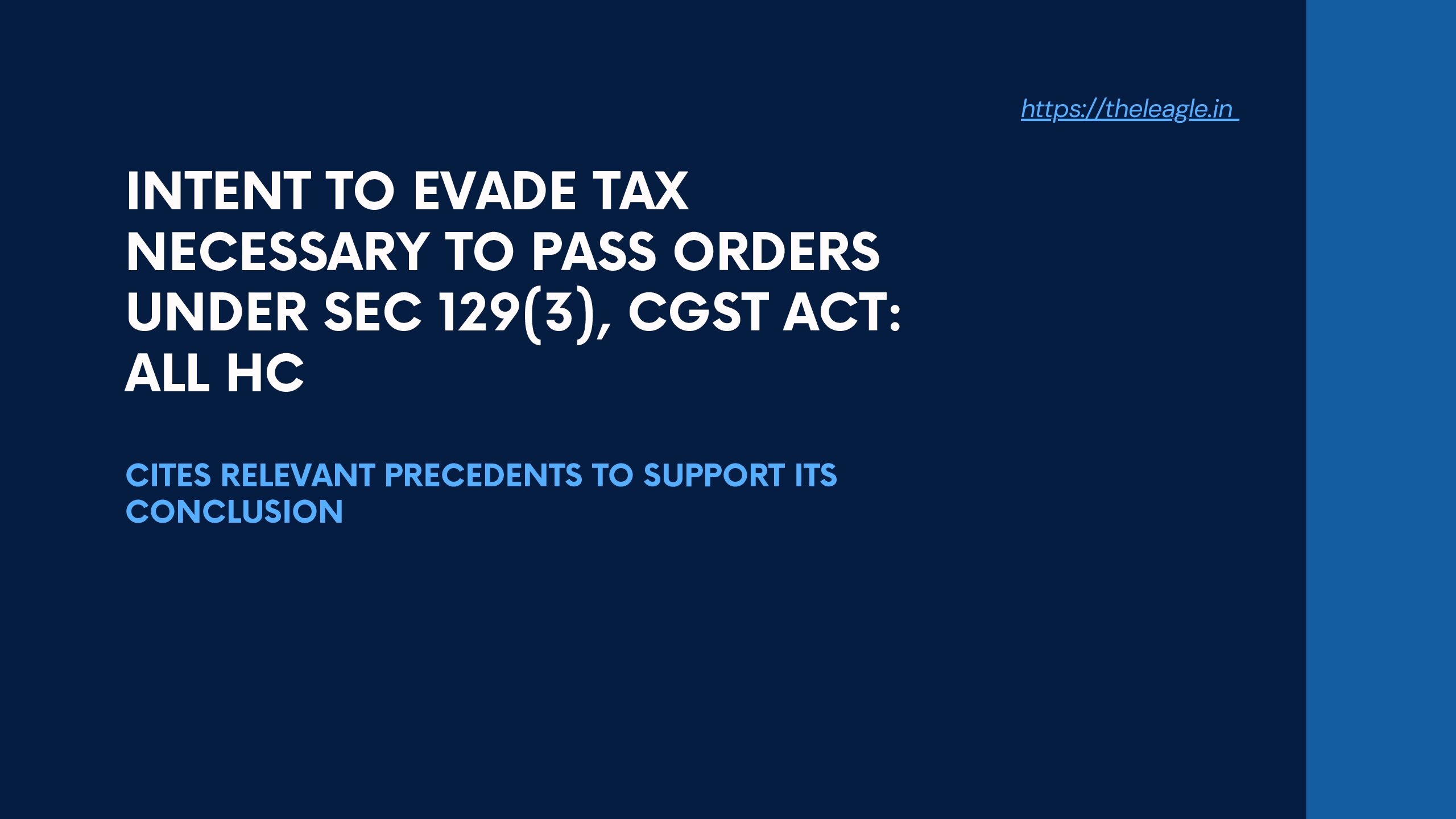The Allahabad High Court in a recent judgment took the view that the GST Department cannot impose a penalty on taxpayers – under Section 129(3), CGST Act, 2017 – for not possessing e-way bills in the absence of an intention to evade tax. The High Court held that the essence of any penal imposition is linked to the presence of mens rea which was clearly absent as revealed from the facts and records of the impugned case. In stating so, the High Court aligned with an emerging jurisprudence on Section 129 that requires intent to evade tax as an essential requirement for passing orders under Section 129(3).
Facts
The petitioner, an authorized dealer of Steel Authority of India Ltd (‘SAIL’) purchased a bar of TMT on 19.02.2021. Tax invoices were issued by SAIL to the petitioner, and they contained the registration number of the transportation vehicle. The petitioner claimed that the e-way bills could not be generated at the onset of transportation since there were glitches in the e-way bill system of the Department. The e-way bills were generated on 20.02.2019 and 21.02.2019. The petitioner’s claim was that the e-way bills were presented at the time of interception of goods before the issuance of showcause notice and before passing the detention order. Aggrieved by the orders of detention passed on 21.02.2019 and 20.10.2019 by the Assistant and Additional Commissioner respectively, the petitioner approached the Allahabad High Court.
Allahabad High Court Quashes Orders of Detention
The Allahabad High Court noted that the relevant question was: despite the petitioner failing to generate the e-way bills on time, did it have an actual intent to evade payment of tax? The High Court cited relevant precedents to note that for proceedings under Section 129(3) intent to evade tax is mandatory and that even in the absence of an e-way bill if there is no discrepancy in the accompanying documents and no intent to evade tax, then penalty cannot be levied. Courts have also held that not generating Part B of the e-way bill is a mere technical error, and if the accompanying invoice has the vehicle details, then it can be reasonably concluded that the taxpayer has no intent to evade tax. Based on an examination of the relevant precedents, the High Court’s summation of the current legal position was:
What emerges from a perusal of the aforesaid judgments is that, if penalty is imposed, in the presence of all the valid documents, even if e-Way Bill has not been generated, and in the absence of any determination to evade tax, it cannot be sustained. (para 15)
As per the facts of the impugned case, the petitioner had generated both the e-way bills, one before detention and one after detention, but both before the order under Section 129(3) was passed. The Allahabad High Court noted, neither of the two orders contained a reasoning as to how and why an intention to evade tax was established. The High Court noted that the petitioner was made to suffer due to a technical error without there being an intent to evade tax on petitioner’s behalf. Elaborating on the importance of establishing intent to evade tax before imposing penalties under Section 129(3), CGST Act, 2017, the High Court observed:
A penal action devoid of mens rea not only lacks a solid legal foundation but also raises concerns about the proportionality and reasonableness of the penalties imposed. The imposition of penalties without a clear indication of intent may result in an arbitrary exercise of authority, undermining the principles of justice. Tax evasion is a serious allegation that necessitates a robust evidentiary basis to withstand legal scrutiny. The mere rejection of post-detention e-Way Bills, without a cogent nexus to intention to evade tax, is fallacious. (para 18)
The Allahabad High Court further added that it was incumbent on the tax authorities to distinguish technical errors from deliberate attempts to avoid tax. And that mere technical errors that do not have financial implications should not lead to imposition of penalties.
Conclusion
The Allahabad High Court through its judgment in the impugned case follows a line of judicial precedents – and the High Court duly cited some of them – that underline the need to establish or indicate the presence of intent to evade tax before tax authorities pass an order under Section 129(3) of CGST Act, 2017. Either the officers are not understanding the scope and objective of the provision or are deliberately ignoring the requisite conditions of the provision before passing orders under Section 129(3). Irrespective, the burgeoning no. of cases by taxpayers claiming violation of Section 129(3) indicates a lack of adherence to the law laid down by Courts in an increasing no. of cases.
